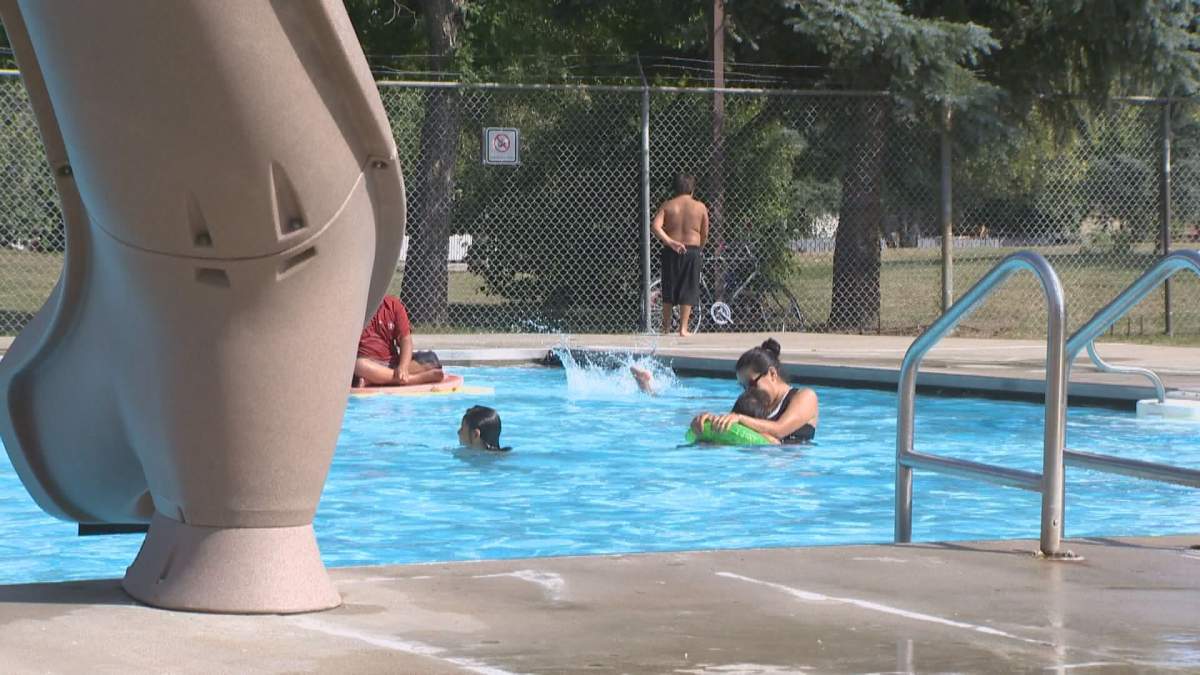Outdoor summer sports aren’t completely cancelled in Saskatchewan — but they will play out differently this year.

Phase 4 of the Saskatchewan government’s plan to reopen the economy during the COVID-19 pandemic kicks off June 22.
The province has split the phase into two parts — the first allows child and youth day camps to reopen, along with outdoor pools and spray pads as well as seasonal/recreational outdoor sports and activities.
“We’ve definitely been missing the kids, definitely been missing the families and getting together but we’re excited to see something,” said Bridget Pottle, executive director for the Saskatchewan Lacrosse Association (SLA).
Pottle said the SLA will be sending its return-to-play guidelines to membership this week and noted that groups across the province will have to work within municipal guidelines, too.
“Some are ready to go June 22, some aren’t, so each community group will have to kind of figure out what they’re going to do and get these kids going,” she said.
Pottle said the focus for the restricted season will be on skill development and lacrosse fundamentals, making it as good a time as any for new athletes to try the sport.
She added that the SLA has a plan for return to competitive play when the time comes.
Regina swim team competing for lanes: coach
While the province is allowing outdoor spray pads and pools to reopen Monday, not all municipalities are moving ahead.

Get breaking National news
Regina spray pads will be ready to open June 22, while the City of Saskatoon is planning for June 26.
However, Saskatoon is planning to reopen some of its outdoor pools this season, while the City of Regina is sticking to its decision in late May to keep pools closed.
“At this time, outdoor pools will not reopen,” the city stated in an email to Global News on Wednesday.
The city said its outdoor pools require “capital maintenance and preparation” to get up and running, which can take seven weeks.
The move is expected to save an estimated $35,000 in opening costs and $415,000 in operating costs — typical for a full summer season.
“Some cities, with newer infrastructure, can open their outdoor pools in two weeks. As the City of Regina updates our outdoor pool infrastructure, such as the Wascana Pool and the Maple Leaf pool, the maintenance period will be reduced,” the city said.
Indoor facilities are currently being prepared in Regina, and their reopening is allowed in the second part of Phase 4, which currently has no set date.
Without outdoor lanes, one swim coach noted the demand from athletic groups alone will be too much for the Lawson Aquatic Centre, the city’s sole indoor facility that will accommodate aquatic sports, to handle.
“We only have one facility where we can train. If the city had four or five, I’d say it’s fine,” said Abderrahmane Tissira, head coach and general manager of the Regina Optimist Dolphins swim team.
Tissira said Swimming Canada has in-depth return-to-swim guidelines that groups can easily follow at indoor and outdoor facilities, including “how many swimmers per lane, coach social distance, how we can manage all these things to keep our staff and athletes safe.”
Tissira added that the suggested limit currently is two swimmers per lane.
“If we go with two swimmers per lane, that only represents about 25 per cent of our capacity,” Tissira said.
Tissira added that the 300-member team, which includes kids and university-level swimmers, normally relies on the use of outdoor lanes — renting each lane at $27 per hour.
He said if two outdoor pools could reopen in Regina, perhaps only to user groups, aquatic programs could cover a substantial part of the costs.
“We are more than 2,000 athletes in the city, so all of them can jump in and be back at their sport,” Tissira said.
“If you rent eight lanes from the a.m. to the p.m., I am sure we can cover the expense for the city.”
The elite-level coach added that the disparity between jurisdictions — within Saskatchewan and across Canada — on when facilities can reopen and how could affect performance once national competition resumes.
He added that the biggest impact will continue to be on the mental game.
“I’ll say it again and again — it’s not about training, it’s not about swimming, it’s about mental health. Our kids, our athletes, need to be back,” Tissira said.
Tissira noted the reopening of gyms and park spaces have been helpful in doing group dryland training.









Comments